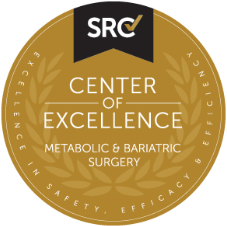

Why am I obese?
Many people are suffering from obesity, around 30% of the Australian population are obese and over 60% also overweight. This has increased substantially over the last 30 years. So it is very common and there might be one of a number of reasons that has led to you struggling with your weight.
Societal/Envronmental factors
- The reality in Australia is that we live in a country that allows us to make many free choices in a free market economy and with a high standard of living. What goes along with this is ready availability of highly refined calorie dense foods and drinks. Such foods include junk foods, chips, ice-cream, soft drinks, energy drinks, pizzas among others. These are available to us easily on the street or without having to leave our own homes, by ordering take-away or through mobile phone delivery Apps. Also going along with this is a more sedentary lifestyle. Often this is because of various societal pressures that may mean we work busy hours, night shifts or at a desk and pressures of this mean we need time to wind down – that could mean we remain sedentary in relaxing, or seek comfort from pleasures such as food. It is very common for people to comfort eat and the more pervasive this habit is the more likely someone is to suffer obesity.
- The end effect of consuming more calories and burning less calories is that the excess consumed energy gets stored at fat (adipose tissue). Humans evolved in a competitive primitive world and needed to eat food when it was available to them (as we would not know when our next meal would come). Also we evolved to store energy as fat for times when we might need this (eg. periods of starvation). We also used to live lives where we expended energy/calories in order to obtain energy/calories (hunting/gathering to obtain food would be exercise to obtain the energy in the food in order to sustain us).
Genetic factors
- There is no easy way to tell how this may have contributed to your weight struggle. If your family has been obese this may suggest an inherited component (although the family upbringing itself will also contribute in an environmental way). It is more common for obesity to run in families. Certain inherited metabolic disorders may also contribute but are generally rare. Links to certain single gene mutations, such as Leptin mutations, have been identified as a “monogenic cause”. “Polygenic obesity” is caused by the combination of a large number of genes meaning the effect is amplified to favour gaining weight. These may also explain the metabolic derangement in people suffering from obesity. Genetic factors essentially cannot be altered in us although the ‘expression’ of these genes to favour someone becoming obese can be affected by things in the environment (epigenetics).
Behavioural/Psychological factors
- Our childhood upbringings influence our lives dramatically and this influences our behaviours, moods, lifestyle and relationship to food. Habits form early in all of us and by their nature are difficult to change. It is universal for humans to experience pleasure from what we eat and drink. This can be a conscious feeling of pleasure if we are very attentive to what we are consuming at the time. The pleasure can also be subconscious and act as ‘comfort eating’. This comfort eating can allay the discomfort of difficult emotions such as anxiety or sadness. This behaviour is very common for humans but can certainly be more significant for certain individuals and lead to problematic eating behaviours and food choices. ‘Binge eating’ can be another problematic behaviour during periods and lead to very excessive consumption of calories in a short period of time. ‘Addictions’ can also be present, and these could include high sugar content drinks (eg. soft drinks) or alcohol (calorie dense). These are difficult behaviours to break.
- It is important for all patients suffering from obesity to become aware of these issues and which may apply to them. This allows the opportunity to alter such habits with the ultimate goal of improvement in your wellbeing and health long term. Sometimes people are aware of these but face barriers to motivation to change. It is for all these reasons Dr Le Page asks his patients to have care provided by his caring team of counsellors/life coaches to help you along the way. This is provided in a respectful, confidential manner and at both an individual and group level to allow you to get the most out of the advice and support given.
Why can’t I lose weight by dieting?
- Undertaking ‘fad’ diets tends not to be sustainable. Our bodies generally like to stay as they are (if you are heavy your body generally wants to keep it that way) so dietary weight loss can mean your body slows down and reduces its metabolic rate, thwarting attempts at weight loss. Ongoing hunger, appetite and cravings tend to lead to plateauing of weight loss, weight which then starts to be regained. Research into this is ongoing, and more types of diets are always being developed.
- Surgery has been scientifically proven to achieve greater and more sustained weight loss compared to dieting and other such measures. It has also been shown to provide the highest chances for a consequent improvement in your health.
- Most people who are overweight or obese wish to lose weight and essentially everyone makes some changes to their diet. Some people try to achieve this goal by undertaking a ‘diet’ and others try to establish a sustainable healthy diet and lifestyle with the assistance of a dietitian. Almost everyone loses some weight by dieting although this is usually only mild.
- And remember, despite the high effectiveness of surgery in its own right, maintaining a healthy diet after surgery is still best for you to achieve the best outcome. People invariably find surgery helps them achieve dietary changes in a number of ways. These include having a resultant increase in the physical signals of fullness and appetite sent by the stomach, being able to relearn healthy eating habits, viewing junk foods differently and being more motivated to make healthy changes once substantial weight loss has been achieved after surgery.
- A bariatric surgery consultation includes an assessment of the likely benefits of surgery and what it means for you to have the surgery




